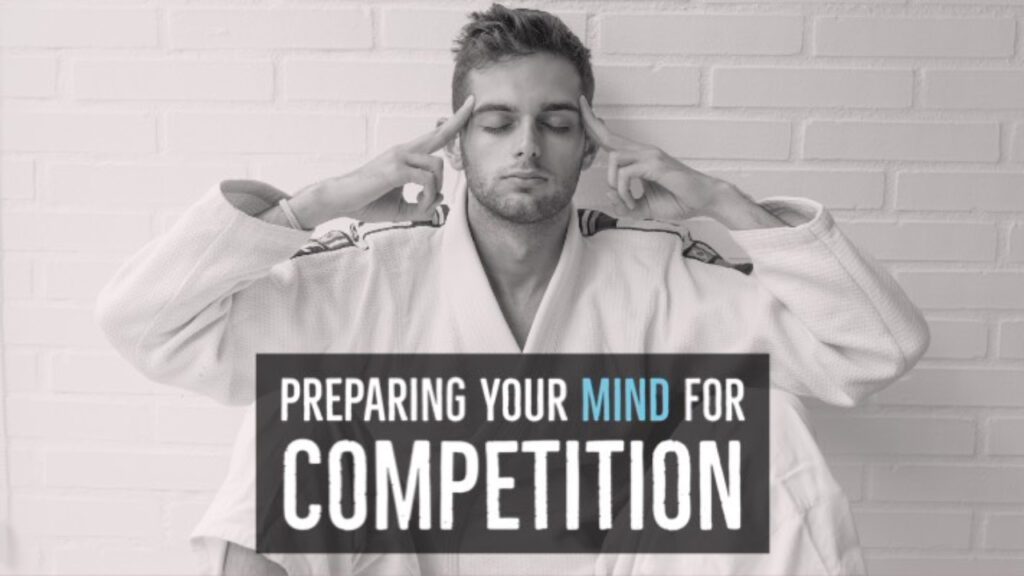In the world of mixed martial arts, honing your physical skills is essential, but what many fighters often overlook is the importance of their mental game. Whether you’re a seasoned veteran or just starting out, developing a strong mental mindset is crucial for success in the octagon. This article will explore various strategies and techniques to help you improve your mental game for MMA, enabling you to outwit and outperform your opponents. From visualization exercises to mental toughness training, discover how you can enhance your focus, confidence, and overall mental strength to excel in this highly demanding sport.
Set Clear Goals
Having clear goals is crucial for improving your mental game in MMA. Start by identifying your long-term goals. Do you want to become a professional fighter? Do you want to win a championship? Having a clear vision of what you want to achieve in the long run will help you stay motivated and focused.
Once you have identified your long-term goals, break them down into smaller, manageable steps. This will make them less overwhelming and more attainable. Set specific, measurable, attainable, relevant, and time-bound (SMART) goals for each step. For example, if your long-term goal is to become a professional fighter, your smaller goals could include improving your technique, increasing your strength and conditioning, and competing in amateur fights.
Develop a Positive Mindset
Having a positive mindset is essential for success in MMA. Positive self-talk is a powerful tool that can boost your confidence and help you overcome challenges. Practice affirmations that reinforce positive beliefs about yourself and your abilities. Instead of dwelling on negative thoughts or self-doubt, replace them with positive statements such as, “I am strong, skilled, and capable.”
Visualization is another effective technique for developing a positive mindset. Close your eyes and imagine yourself succeeding in your fights. Visualize every detail, from the crowd cheering your name to executing perfect techniques. This mental rehearsal can enhance your confidence and performance.
When it comes to your mindset, focus on the process rather than just the outcome. Embrace the journey of improvement and growth in every training session and fight. By focusing on the process, you can stay motivated and continue to make progress, even if the immediate outcome is not what you hoped for.
Lastly, embrace challenges as opportunities for growth. MMA is a demanding sport that requires mental and physical toughness. Instead of shying away from difficult situations, see them as chances to improve. Embrace adversity, learn from it, and use it as fuel to become a better fighter.

Manage Stress and Anxiety
Stress and anxiety are common in MMA, but managing them effectively is key to performing at your best. Implement stress management techniques such as deep breathing, meditation, and progressive muscle relaxation. These techniques can help calm your mind and reduce stress levels before and during fights.
Deep breathing exercises are particularly useful for managing anxiety. Take slow, deep breaths in through your nose, hold for a few seconds, and then exhale through your mouth. Repeat this exercise several times, focusing on your breath and allowing your body to relax.
It’s important to remember that seeking professional help is not a sign of weakness. If you find that stress and anxiety are interfering with your performance or overall well-being, don’t hesitate to reach out to a sports psychologist or mental health professional. They can provide valuable strategies and support to help you manage and overcome these challenges.
Build Mental Toughness
Building mental toughness is crucial for success in MMA. One effective way to develop mental toughness is by exposing yourself to uncomfortable situations. Push yourself to your limits in training and sparring sessions. By stepping outside of your comfort zone, you can build resilience and mental strength.
Embracing failure as a learning opportunity is another important aspect of mental toughness. Every fighter faces setbacks and losses. Instead of dwelling on these experiences, use them as motivation to improve and grow. Learn from your mistakes, analyze your performance, and make necessary adjustments.
Resilience is a key characteristic of mentally tough fighters. Cultivate a mentality that allows you to bounce back from setbacks and persevere through challenges. Remind yourself that setbacks are temporary and that you have the ability to overcome them. Focus on your strengths, stay positive, and never give up.
Lastly, cultivate a growth mindset. Believe that your skills and abilities can improve with effort and practice. Embrace challenges as opportunities for growth and see setbacks as stepping stones to success. A growth mindset will help you stay motivated and continuously strive for improvement.

Visualize and Prepare
Visualization is a powerful tool for mentally preparing yourself for MMA fights. Create a pre-fight routine that includes visualization exercises. Before fights, find a quiet place where you can close your eyes and mentally rehearse your game plan. Visualize every aspect of the fight, from the opening bell to the final seconds. See yourself executing successful techniques, evading your opponent’s attacks, and emerging as the victor.
In addition to visualizing your game plan, mentally prepare for different scenarios that may arise during fights. Visualize yourself facing various challenges, such as being taken down or losing the first round. By mentally preparing for different scenarios, you can develop strategies and tactics to overcome them.
Improve Focus and Concentration
In the fast-paced world of MMA, maintaining focus and concentration is crucial. Practicing mindfulness meditation can improve your ability to stay present and focused during fights. Set aside a few minutes each day to practice meditation. Sit in a comfortable position, close your eyes, and bring your focus to your breath. When your mind wanders, gently bring your attention back to your breath. This practice will enhance your ability to stay focused on the present moment.
Using mental cues is another effective way to improve focus and concentration. Develop specific cues that help you dial in and stay in the zone. For example, you could use a cue word or a physical gesture to remind yourself to stay focused during training and fights. By using mental cues, you can quickly bring your attention back to the task at hand.
Eliminating distractions is crucial for maintaining focus. During training and fights, make an effort to minimize external distractions. Put away your phone, find a quiet training space, and create a routine that allows you to fully immerse yourself in your training and fights.
Lastly, developing a routine that improves concentration is essential. Establish a pre-training and pre-fight routine that helps you get into the right mindset. This routine could include warm-up exercises, visualization techniques, and mental cues. By following a consistent routine, you can train your mind to enter a focused state more easily.

Utilize Performance Enhancers
To further enhance your mental game, consider utilizing various performance enhancers. Sports psychology techniques can provide valuable insights and strategies for improving mental performance. Seek coaching and guidance from experts in the field who can help you develop personalized mental training exercises.
Incorporating mental training exercises into your routine can significantly improve your mental game. These exercises may include visualization, positive affirmations, goal setting, and self-reflection. By dedicating time to mental training, you can strengthen your mental muscles and enhance your overall performance.
Exploring alternative methods such as sports hypnosis or neurofeedback may also benefit your mental game. Sports hypnosis involves working with a trained professional to access and reprogram your subconscious mind, eliminating limiting beliefs and enhancing mental focus and confidence. Neurofeedback utilizes technology to measure and provide feedback on brainwave activity, helping you optimize your mental state for peak performance.
Manage Fight Anxiety
Feeling anxious before fights is normal, but managing fight anxiety is essential for performing at your best. Develop a pre-fight routine that helps you calm your nerves. This routine may include deep breathing exercises, listening to calming music, or engaging in a meditation practice. Experiment with different techniques and find what works best for you.
Utilize relaxation techniques before fights to help reduce anxiety. Progressive muscle relaxation, where you tense and then release each muscle group in your body, can help you relax both physically and mentally. This technique can be particularly useful right before stepping into the cage.
Focus on your strengths and preparation. Remind yourself of all the hard work you have put into your training leading up to the fight. Trust in your abilities and the countless hours you have dedicated to honing your skills. Building confidence in your preparation can help alleviate anxiety.
Lastly, trust your training and preparation. Have faith in your skills and abilities. Remember that you have trained for this moment and that you are ready to perform to the best of your abilities. Trusting in your training can help alleviate anxiety and boost your confidence.

Develop Resilience
Resilience is a vital quality for any MMA fighter. Embrace adversity as an opportunity for growth. Every setback presents a chance to learn, improve, and come back stronger. Instead of being discouraged by losses or setbacks, use them as motivation to work harder and make necessary adjustments.
Learn from your setbacks and use them as fuel for improvement. Analyze your performance, identify areas for growth, and make the necessary adjustments. Seek feedback from your coaches and teammates to gain different perspectives and insights. Remember that setbacks are a natural part of the journey, and they should not discourage you from pursuing your goals.
Cultivate a positive mindset towards challenges. See them as opportunities for growth and improvement rather than as obstacles. Embracing challenges will help you develop resilience and persevere through difficult times. Remind yourself that you have the ability to overcome any challenge that comes your way.
Seek support from teammates, coaches, and mentors. Surround yourself with a positive and supportive network that believes in your abilities and can offer guidance during tough times. Having a support system will provide the necessary encouragement and motivation to keep pushing forward.
Master Your Emotions
Mastering your emotions is crucial for maintaining composure during fights. Identify and label your emotions. Recognize and acknowledge the emotions you are experiencing, whether it is excitement, fear, or anger. By identifying your emotions, you can better understand how they may be influencing your thoughts and actions.
Practicing emotional regulation techniques is essential for managing your emotions. Take deep breaths, count to ten, or use visualization techniques to calm yourself down when you feel overwhelmed. By regulating your emotions, you can maintain a clear mind and make rational decisions during fights.
Manage adrenaline and arousal levels effectively. Adrenaline is a natural response to the fight or flight instinct, but excessive adrenaline can impair your ability to think clearly. Prior to fights, find strategies that help you channel your adrenaline in a positive way. This may include practicing deep breathing, visualizing success, or engaging in a pre-fight routine that helps you relax.
Develop mental strategies for staying composed during fights. This may include reminding yourself of your game plan, focusing on one task at a time, or using positive self-talk to boost your confidence. Having mental strategies in place will help you maintain composure and make sound decisions in the heat of battle.
In conclusion, improving your mental game for MMA requires dedication, practice, and a positive mindset. Set clear goals, develop a positive mindset, manage stress and anxiety, build mental toughness, visualize and prepare, improve focus and concentration, utilize performance enhancers, manage fight anxiety, develop resilience, and master your emotions. By implementing these strategies and techniques, you can enhance your mental game and maximize your performance inside the cage.

